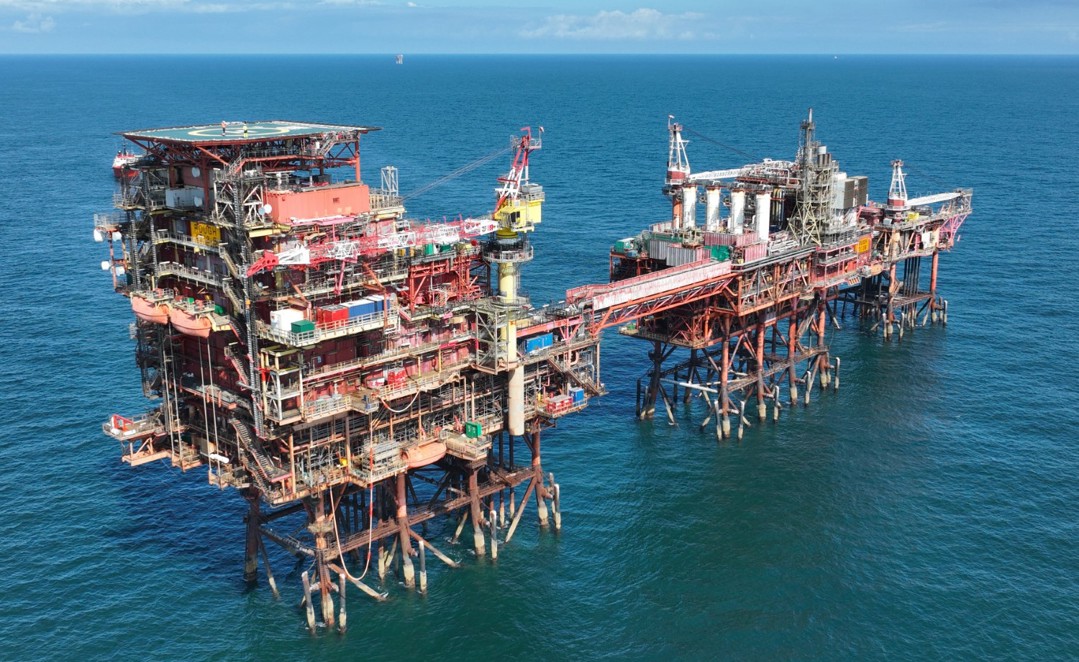Yesterday felt like a fairly momentous day for the net zero economy. The Government’s Powering Up Britain report, stretching to hundreds of pages, provides a level of detail we’ve not previously seen on how we will get to Net Zero in a secure, affordable and sustainable way.
The Government hopes that its new strategic approach will provide a springboard for investment in Net Zero and what we’ve seen is a significant step in the right direction.
A response to the US Inflation Reduction Act, the Treasury hopes to boost economic growth by increasing the level of investment in the infrastructure projects needed to decarbonise energy systems, homes and transportation.
The US government has earmarked $370billion for the Inflation Reduction Act, indicative of the size of the task at hand and the economic prize Net Zero represents.
It’s my belief that climate change is not only the biggest single threat facing civilisation today, but the biggest single opportunity we have to inject some serious growth into the UK economy.
Drastically cutting the carbon we put into the atmosphere is the only way we can stop the march towards a climate catastrophe. Transforming how we generate, store and use energy can make a huge difference to reducing the warming of our planet and boosting the exchequer.
The announcement puts hydrogen at the centre of a future Net Zero strategy. I’ve no doubt that hydrogen is going to be a crucial part of the UK’s energy mix in the near future. The shift to renewable forms of energy is happening at pace. But a mix of solar, wind, nuclear and battery storage will not be sufficient to maintain security of supply. We need longer term resilience which to date has come from fossil fuels, but I hope will soon come from hydrogen.
I welcome the Committee on Climate Change’s recent recommendation that hydrogen storage should be developed faster than currently planned. We stand ready to invest to support the roll out of hydrogen in the UK. We want to convert Rough, our gas storage site, into one of the world’s biggest hydrogen stores. As soon as a regulatory and policy framework exists to enable this, we will unlock around £2bn of investment that will upgrade Rough to provide half of the UK’s long-term storage.

It’s major infrastructure projects such as this, that can drive forward the UK’s Net Zero ambitions, create high quality, long-term green jobs in the UK, and provide the kind of economic prosperity that has seen Aberdeen flourish for much of the last 40 years.
Developing this core hydrogen storage capability will be critical to unlocking the market for hydrogen production and consumption.
We are ready to invest here too. Last week saw us sign a Memorandum of Understanding with Lhyfe to explore the development of offshore green hydrogen production. The scheme will see offshore wind power in the North Sea used as a cheap form of energy to turn sea water into storable gas, becoming the equivalent of a long duration battery providing much needed back up to overcome the natural slumps in generation seen with renewables.
We’re working with Equinor on an onshore equivalent at our gas terminal in Easington. Currently up to a third of the UK’s total gas supply enters via Easington, much of it from Equinor’s Norwegian facilities. It’s situated close to some of the world’s largest offshore wind farms, offering huge potential for both blue and green hydrogen production.
I’m hugely excited by the opportunity this business has to take the UK on its decarbonisation journey. We’ve grown the team both in terms of size and skills, we are growing our market share in the solutions that will get us to Net Zero in the home, such as heat pumps, electric vehicle chargers and demand side response.
But, if we get the hydrogen economy right, it could be enormously beneficial for UK plc. For the first time in decades we could become a net energy exporter. Great for jobs, great for the Treasury and great for Britain. Our geographically unique coastline, wind resource and underground storage make this too good an opportunity to pass up, only scale of ambition should stop us.

Blog
Chris O'Shea - we must create a skills system that will produce the workers the UK needs to build our low carbon future
Sustainability

Case Study
The Demand for Energy Flexibility
Sustainability
Powering up the hydrogen revolution
Sustainability

Blog
"It’s our role to take everyone on the journey towards Net Zero living"
Sustainability
Progressing our People and Planet Plan
Sustainability

Case Study
Centrica's Climate Transition Plan
Sustainability


